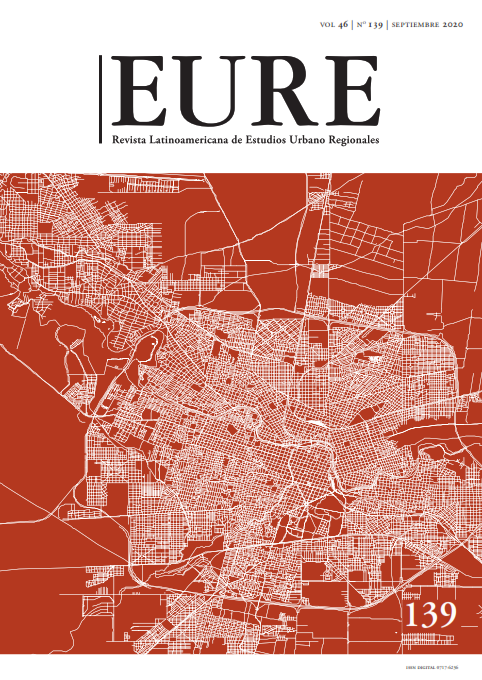Globalización, conectividad interespacial y articulación territorial de los puertos mexicanos
DOI:
https://doi.org/10.4067/S0250-71612020000300233Palabras clave:
redes, globalización, integración territorialResumen
Ante el crecimiento exponencial de la conectividad interespacial y la movilidad en la actual fase de globalización de la economía-mundo, se analizan las implicaciones geográficas y territoriales de los nuevos paradigmas del transporte internacional, que han impulsado la formación de una red global de puertos y transporte multimodal. Luego se aportan criterios de análisis para establecer los desafíos de conectividad logística, modal y territorial que tienen los puertos mexicanos en la actualidad; y se reflexiona sobre el papel fundamental que desempeñan los actores en la intensificación de la conectividad a diferentes escalas, articuladas a través de redes y corredores multimodales. Finalmente, se reflexiona sobre la posición que mantienen los principales puertos del país dentro de la red global; sobre su potencial de desarrollo como hubs regionales; y sobre la problemática de la articulación entre fragmentos territoriales distantes y dispersos, pero a la vez fuertemente integrados en procesos de producción, distribución y circulación globalizados.
Descargas
Publicado
Cómo citar
Número
Sección
Licencia
Derechos de autor 2020 Revista EURE - Revista de Estudios Urbano Regionales

Esta obra está bajo una licencia internacional Creative Commons Atribución 4.0.
Al momento de aceptar la publicación de sus artículos, los autores deberán formalizar la cesión de derechos de autor a EURE, según las condiciones establecidas por la Revista.
Ésta establece que el autor autoriza a EURE de manera gratuita, exclusiva e ilimitada a reproducir, editar, publicar, distribuir, publicitar, comercializar y traducir el artículo, a cualquier soporte conocido o por conocer y desarrollar.
Del mismo modo, los autores aseguran que el artículo propuesto es original, no publicado y no propuesto para tal fin a otro medio de difusión.


